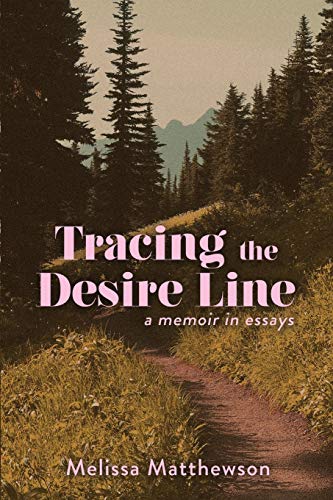
It took getting used to. The way they looked at me but didn’t see me. I was a shadow with substance, a living redundancy.
I called him Rostov. He’d been with me for six years but got old and died because he’d been quite old already when I found him.
I found him on Kloof Street, near those nice trendy restaurants where the young people hang out. It was ice cold and drizzling. It must have been about two or three in the morning because that was the only time I went there. There was a black garbage bag next to one of those green plastic bins with the metal latches that never have locks on. He’d torn the bag open and was rummaging through it, making it look like a disemboweled animal, like a pigeon when a car had driven over it.
I opened the green bin and we stood there next to each other, perusing. His coat was tan and white, dirty, straggly, and moist. He was shivering and stank. He was bone thin.
I remember thinking how he didn’t have my advantages. He didn’t have hands or a mind like a human. He couldn’t go to a shelter when things got really bad. He didn’t have a jacket like mine or shoes or a scarf to wrap around his head. But I also thought how he could probably feel cold and hunger just like me. And that was why I felt sorry for him.
I found some green minced meat with moldy white spots on it. It was cloying and made me gag. But Rostov stood up and curled his spine tensely and gave me this pointed stare. And he stayed like that, motionless and intimidating, his eyes alive and glittering and very, very hungry; I could have sworn he was thinking of robbing me.
So I gave him the meat, and the moment I’d put it down and stepped away, he pulled up the corners of his snout to show me his yellow canines and snarled at me.
Rostov was just like me. Wary and afraid. What do you want, mistress? said that snarl, like an old, tired whore presented with a gift she badly needed and would have to earn.
But he gulped it down, not taking his eyes off me for a moment.
And that was how I met Rostov, just the two of us alone, abandoned on an abandoned street at an hour meant for shadows while the real world and the real people in it rested.
Then he left. Without as much as a thank you. And one of those dumb security guards in a silly, self-important, faded, yellow plastic vest, came around the corner, walked toward me, waved his arms and said, “Sjoe! Sjoe! go away! What do you want here? Sjoe!” As if I were a dog like Rostov. As if I was bothering someone. As though Jesus had never said that even the dogs get the scraps off the table. Just to make himself feel better about also being a shadow like me, believing that if he could chase a shadow away it meant there was still a bit of light in him.
I left and walked around until dawn. In winter I always tried not to sleep at night. It was too cold.
I saw the way they looked at me when I slept during daytime, thinking I was idle and reassuring themselves, saying, “See? it’s not that bad. At least they can lie in the sun the whole day and do nothing.”
It’s because they don’t understand, though. They don’t know how cold it gets. They don’t know how it feels to wait for your muscles to unknot; muscles that are as hard as iron from the tension of the cold, from the way your body fights it with all the shivering. Then you wait for the heat to get to your bones. The sun is lazy in winter and it takes a long time, and when it finally gets to your bones, you wait because you think, if you can get enough of it, deep inside your bones, it may last all night, like heat caught in a tarred road, radiating.
The next morning, around the same time, I saw Rostov again. He was sitting near the same green bin. When he saw me coming he looked away, as though our meeting was happenstance. All suave and shit. Man about town.
There was nothing in the bin this time. He looked like he was rating me (and I wasn’t faring well), his nose searching hopefully.
“Nothing, Rostov,” I said. But I didn’t touch him because I thought he might bite. One must be careful on the streets. He was clever and knew this.
I walked toward the Chinese restaurant, looking out for those bastard security guards or tsotsis that would rape women like me or gangs of the young ones (who are probably the most dangerous of the lot); a doe in a forest, all twitchy and nervous, on the lookout for danger. There are always dangers; especially when it’s really quiet and you can’t hear a thing except your own breathing; especially when everything seems fine and you’re feeling safe.
I didn’t think he would, but I called him and he followed me, bin after bin, sitting neatly like a gentleman waiting for his tea while I did the filing.
“Hey, Count Rostov,” I said, “life’s tough, isn’t it?” And I spoke to him like that; a lonely, silly old woman.
I heard the name somewhere: Count Rostov. Don’t ask me where. I’d been around a while. Could have been anywhere. But I liked it and it stuck.
In one of the green bins, near Shoprite, I found some bread in a plastic bag that looked OK. I was hungry but gave it to Rostov. I figured he was counting on me and I liked him. He looked at me the way some beggars do when someone gives them an apple, but he ate it and walked with me until dawn. He started looking more relaxed, as though he thought I might be a friend, but kept his distance.
I was surprised when he stayed with me during that day while I rested, and then again the whole night and for a couple of days after that. Always at arm’s length. He was a tough, cynical bastard.
At first he came and went as he pleased. After those few days he’d stayed with me, he disappeared and I didn’t see him for more than a week. Then I saw him in Greenpoint, sitting alone next to a green bin.
And so it went for nearly six months; Rostov coming and going, expecting to be fed, without an ounce of gratitude or affection in return; a bad husband off to sleep with prostitutes and drink, blowing all his money, and a wife too broken and pathetic to put a stop to it.
He always found me, though. And he always just sat somewhere, quietly, his ears pointed and alert, like he had expected me to walk up that particular road at that particular time; as though it had all been pre-ordained and he had some special insight into my daily destiny.
Later on he slept next to me, cradled in my arms or behind my back, and never left my side. We kept each other safe. Once he got ill and I took him to Anti-Cruelty, where they looked after him until he got well enough to bite some other dog. He could look vicious and the tsotsis were afraid of him. I told them if he bit them they would get rabies and foam at the mouth and their brains would rot and they’d die. And the way Rostov looked when he got worked up, with his lips drawn back over his canines and the hair on his back rigid and upright, made it look like it could be true.
A couple of years after I’d met him, when his snout started turning gray, I got so ill I was sure I would die. I only got up to get water from a tap in a parking lot near the Castle. For six days he never left me. When I got better and had a good look at him, he was bony and haggard and happy to see me up and about again. And that made me cry and hug him, and he got embarrassed and walked away and waited for me to get a grip.
That was Rostov. My friend. With his harsh grisly coat and tan spots, half of which washed out. He was one of those dogs that checked for traffic before crossing a road. There are people with less sense.
When he died I buried him in the Gardens. He loved the Gardens, even though we could never stay long because they chased us away. Imagine! All those birds and squirrels and cats and rats, but no dogs allowed! When they chased us away we would go around and enter from the other side and walk very, very quickly so that when they saw us and told us to leave again we had a long way to go and, taking our time, could enjoy it like all the other people, the real people, and the ducks and squirrels and rats.
Of course I had to sneak in at night to bury him. It was dangerous because lots of bad people sleep there at night. I dug him a grave under this huge, old tree. It was two or three feet deep and I dug it with my hands and covered it carefully with autumn leaves so no one would know he was there and bother him.
That’s where Count Rostov is. Underneath that big old tree. I often sat on a wooden bench in front of that tree and it made me smile when other people sat there, because I thought if Rostov knew they were that close to him he’d bark at them.
When I died no one buried me for a while. I died in a park in Vredehoek and people walked by because it looked like I was sleeping. It made sense. To them I had always been a dead body. A body taking up space. That was why it took them so long to realize it.
I died on a Monday and didn’t know where to go, so I stayed there. It was this old lady that realized I was dead. She walked past me that day and then again on Wednesday and saw that I was lying the same way, in the sun against a fence with my face turned away.
But they were OK, those three days after I’d died. Because Rostov was there. And when they took my body away and I was ready to leave, he knew where to go.

